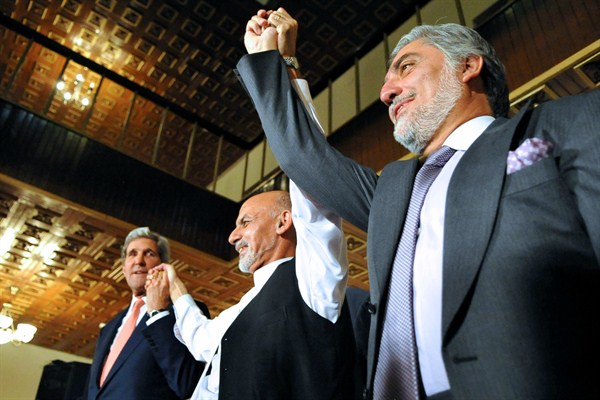U.S. Secretary of State John Kerry’s shuttle diplomacy in Kabul this weekend paved the way to resolving Afghanistan’s current election crisis, while helping to establish a potential framework for addressing more-enduring problems embedded in that country’s political system. In so doing, Kerry’s effort fortified Afghanistan’s ability to overcome future political challenges with less dependence on U.S. intervention and support. Despite the successful deal-making, however, Afghanistan continues to face major challenges.
Kerry’s trip proved essential for resolving the immediate crisis caused by Abdullah Abdullah’s refusal to accept that his rival, Ashraf Ghani, had overcome a weak first-round showing to surge ahead of Abdullah in last month’s second-round ballot without the help of serious electoral fraud in Ghani’s favor. Abdullah already believed that fraud had robbed him of the presidency in the 2009 Afghan national elections.
Abdullah now claimed that he received a majority of the “clean ballots” in the June 14 runoff and that incumbent President Hamid Karzai, who won the 2009 election, had instructed electoral officials to cheat on Ghani’s behalf. Although he initially demanded only a comprehensive audit of the results, Abdullah subsequently suggested that he might declare a parallel government based in his strongholds in northern Afghanistan. At public rallies, many of his supporters called for such a move, and at least one provincial governor has recognized Abdullah as president.

